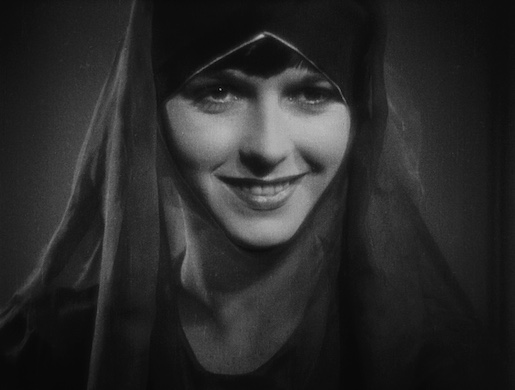Prepare, Movie Lovers, To Be Taken Aback by Louise Brooks in ‘Pandora’s Box’
Brooks is forever fresh, startling in her contemporaneity — she still shocks. The actor can be seen in a 4K restoration of the 1929 movie, which survives as a remarkable achievement, at Film Forum.

How does a director best cull a performance from an actor? One Austrian filmmaker, G.W. Pabst, encouraged enmity and distance on the set in the hopes that his players would bring a concomitant ferocity to their performances. At least, that was the story told by the actress Louise Brooks (1906-85) in her 1982 biography “Lulu in Hollywood.” Pabst “was not aroused by sexual love … it was sexual hate that engrossed his whole being with its flaming reality,” she wrote.
A casual observer could be forgiven for questioning the efficacy of “flaming reality,” but there’s no doubting that Pabst was significant in cementing Brooks’s claim on history. After kicking around Broadway and Hollywood for close to a decade, the actress traveled to Europe looking for more rewarding film roles. The two films the 23-year-old Kansan made with Pabst, “Pandora’s Box” (1929) and “Diary of a Lost Girl” (1929), found her working in a milieu in which she “was treated with a kind of decency and respect unknown to me,” Brooks wrote.
Film Forum will be hosting a new 4K restoration of “Pandora’s Box” beginning on February 14, presumably as a postscript to its recent series of lesbian-centric movies, “Sapph-O-Rama.” Among the indelible figures in the film is Countess Augusta Geschwitz (Alice Roberts), a lesbian without apology and a character who longs for Lulu, the role played by Brooks. Contemporary viewers, particularly those who’ve had little experience with early cinema, will likely be taken aback by how forthrightly Pabst and Roberts present the good countess.
It’s also a safe bet that 21st century audiences will be taken aback by Brooks. No flamboyant gesticulations, exaggerated expressions, or stilted confrontations here, but, rather, an actress — a presence, really — of remarkable magnetism. Chalk it up to her sleek beauty and that signature bob haircut, sure, but don’t discount Brooks’s uncanny naturalism. Few actors have been as unfettered in front of the camera. Although her modernity is typically associated with the Roaring Twenties, Brooks is no poster girl for a bygone age. She’s forever fresh, startling in her contemporaneity — she still shocks.

The modest Midwestern community in which she was raised was not remembered fondly by Brooks, being a place in which its members “prayed in the parlor and practiced incest in the barn.” But Brooks was driven: She was dancing alongside Martha Graham at age 15, appearing in nary a stitch two years later in the Ziegfeld Follies and signed to Paramount Pictures upon turning 21. She had an array of affairs, including a one-night stand with Greta Garbo, and counted W.C. Fields as a close friend.
Hollywood proved too contentious an environment for a contentious young actress. When Pabst heard that Brooks’s contact with Paramount had hit the skids, he forsook casting Marlene Dietrich in the rule of Lulu, dismissing her as “too old and too obvious.”
Brooks’s esprit, a highly charged mix of naivete and sensuality, fit with the director’s plans to adapt “Earth Spirit” and “Pandora’s Box,” two plays by the German dramatist Frank Wedekind. Was the spotty reception of the film due to its racy content or, as some scholars have suggested, Brooks’ status as an American?
Whatever the case, “Pandora’s Box” survives as a remarkable achievement, a jerry-rigged morality tale that is deeply cynical, not a little misogynistic, and almost ridiculously melodramatic. The story of an avaricious young woman who uses the considerable means at her disposal to get what she wants takes some wild and often wildly erotic turns.
That Brooks managed to retain a sense of sweetness after having steeped herself in the seedier precincts of Weimar Germany speaks to her hard-won resilience. Those who haven’t made Lulu’s acquaintance are in for a ride.

